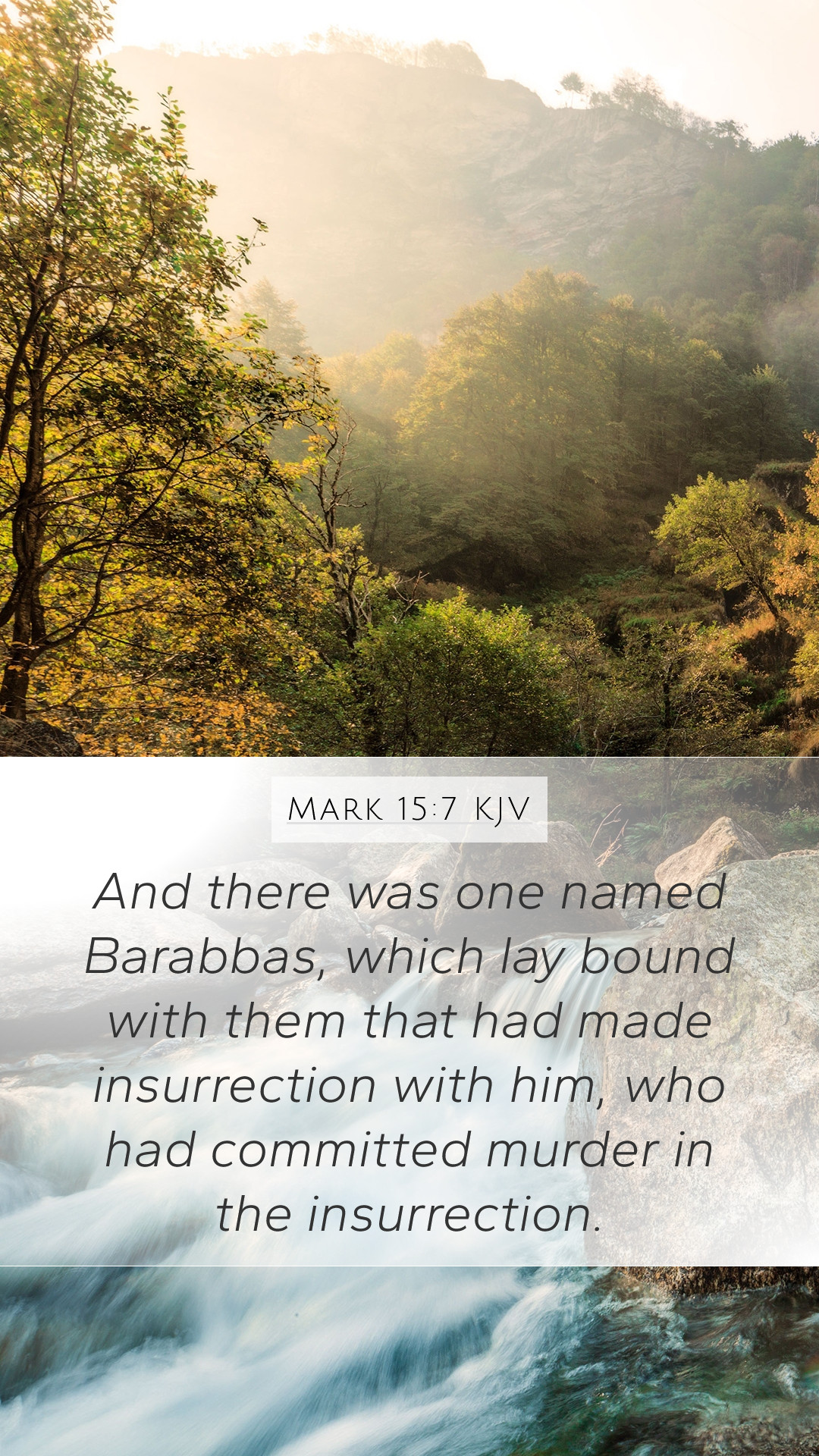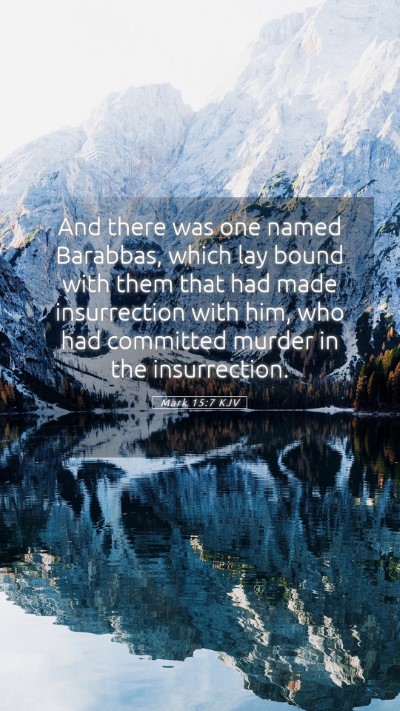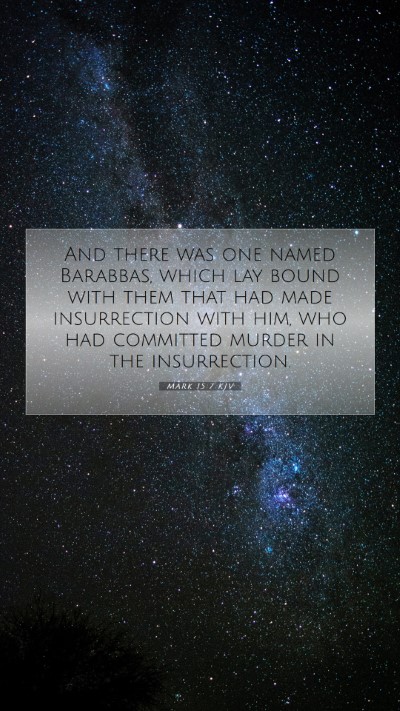Understanding Mark 15:7 - A Comprehensive Bible Verse Explanation
Mark 15:7 states, "And there was one named Barabbas, which lay bound with them that had made insurrection with him, who had committed murder in the insurrection." This verse highlights a pivotal moment during the trial of Jesus, where Barabbas, a well-known prisoner, is brought forth as a contrast to Christ. Below is a detailed analysis of this scripture, drawing insights from esteemed public domain commentaries.
Bible Verse Meanings and Interpretations
In this verse, we encounter Barabbas, whose name means "son of the father." This name symbolically represents a false messiah figure in contrast to Jesus, who is the true Son of God. The context of the verse is crucial for understanding its deeper implications. Here, we provide insights based on various commentaries:
Insights from Matthew Henry
Matthew Henry explains that Barabbas was a notorious criminal, known for his involvement in insurrection and murder. He draws a parallel between Barabbas and Jesus, noting that the crowd’s choice to release Barabbas over Jesus is emblematic of humanity’s inclination to choose sin over salvation. The unjust release of Barabbas serves as a powerful example of the world’s rejection of righteousness.
Insights from Albert Barnes
Albert Barnes points out that the actions surrounding Barabbas offer a heartbreaking reflection of the human condition. He emphasizes that Barabbas is not merely a guilty man; he represents all sinners, illustrating the concept that Christ dies for those who are guilty. The choice given to the people serves as a reminder of their role in the crucifixion narrative and the grave implications of their decision.
Insights from Adam Clarke
Adam Clarke delves into the historical context, noting that Barabbas was likely a leader of a violent rebellion against Roman rule. Clarke highlights the significance of the people's demand for Barabbas’ release, suggesting it reflects a societal desire for political liberation over spiritual redemption. This moment accentuates the importance of understanding biblical history in interpreting scripture.
Theological Significance
Mark 15:7 is not just a recounting of an event; it is rich with theological implications:
- Contrast Between Barabbas and Jesus: The narrative juxtaposes Barabbas, a man of violence, against Jesus, the embodiment of peace and grace.
- Humanity’s Rejection: The choice to free Barabbas illustrates the broader theme of humanity's rejection of Christ throughout the Gospels.
- Symbolism of Freedom: Releasing Barabbas symbolizes a flawed understanding of freedom; true freedom is found in Christ, not in rebellion.
Application of Mark 15:7 in Daily Life
This scripture invites believers to reflect on their choices. Here are some practical applications:
- Evaluating Choices: Just as the crowd had to choose between Jesus and Barabbas, we too face daily choices that reflect our values and priorities.
- Understanding Forgiveness: The concept of Barabbas being set free challenges us to consider the scope of God's forgiveness, even for those who seem undeserving.
- Seeking True Freedom: It reminds us that true freedom comes from a relationship with Christ, not from worldly desires.
Cross References
To deepen your understanding, consider these related verses:
- Luke 23:18-25 - The crowd’s choice to free Barabbas.
- John 18:40 - The connection between Barabbas and the concept of freedom.
- Romans 5:6-8 - The idea that Christ died for the ungodly, paralleling Barabbas' release.
Conclusion
The verse Mark 15:7 is a profound illustration of the human tendency to choose the sinful over the sacred. As we engage in Bible study insights, understanding this passage can help us explore the depths of God’s grace and the call to recognize true freedom in Christ. Whether through Bible study groups or online Bible study, reflecting on this verse can enrich our Bible study lessons greatly.


